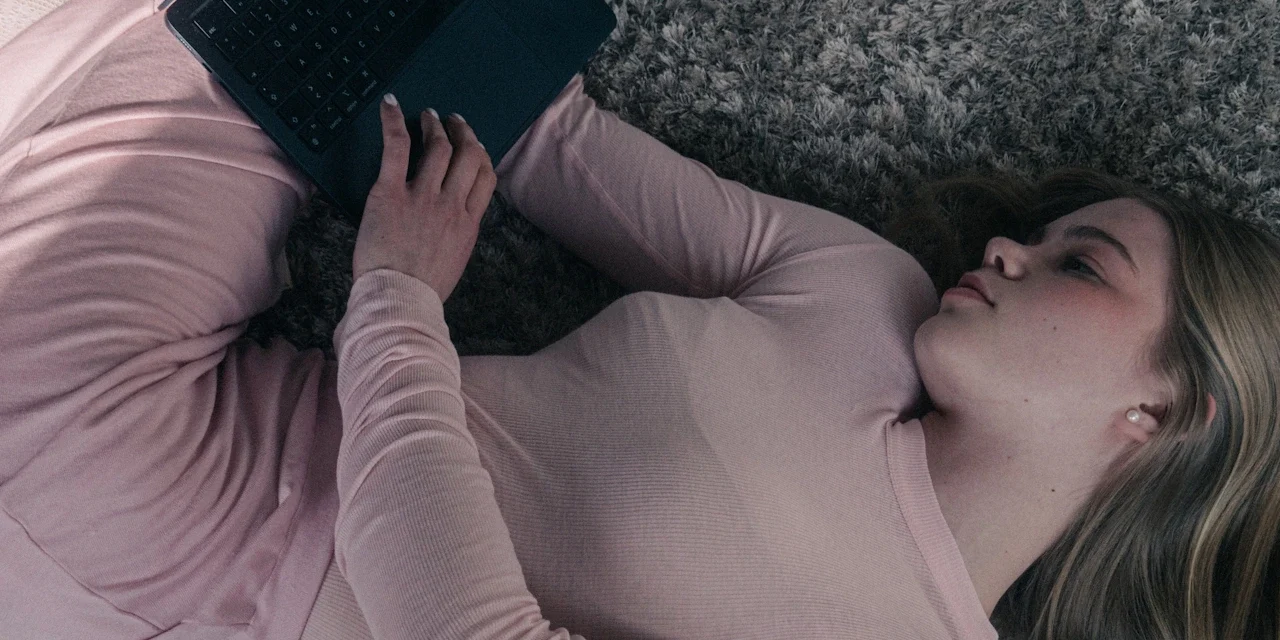Suppose you’ve found yourself staring at your phone, thumb hovering over dating apps with a sense of doom-scrolling rather than excitement. In that case, you’re experiencing something that’s become alarmingly common: dating burnout. As someone who’s navigated everything from long-term relationships to situationship hookups and the frustrating world of dating apps, I’ve learned that sometimes the most radical and refreshing thing you can do for your love life is to step away from it entirely. Take a pause. What started as a simple reorientation after a long-term relationship turned into a revelation about how toxic our current dating culture has become—and why taking a dating break isn’t quitting, but recalibrating your approach to enter the dating world with intention, rather than desperation, for a better experience.
“The attention economy has hijacked our romantic lives. Apps profit when we stay single and keep swiping, not when we find lasting love.” – Dr. Jenny Odell, author of ‘How to Do Nothing’ and Stanford lecturer
The Statistics Behind Dating App Fatigue: Why Millions Are Logging Off
Dating burnout isn’t just something you’re imagining—it’s become a full-blown crisis, and the numbers back it up, or rather, the numbers are backing down. Tinder lost 9% of its paying users in 2024, and what about Match Group and Bumble? They’ve hemorrhaged a whopping $40 billion in market value since 2021. Bumble recently reported reducing its workforce by 30% due to the decline. That’s not just a bad quarter; that’s millions of people saying “nope, we’re done with this.” And honestly, who can blame them? The whole routine—endless swiping, crafting messages that go nowhere, sitting through lackluster first dates with people you have zero chemistry with—has become this soul-crushing Groundhog Day situation. Then there’s the non-stop flood of contradictory dating advice all over social media. One day, you’re reading about “men-repelling outfits” (apparently, wearing what you like is wrong?), the next, you’re being told to embrace your inner traditional wife, boss babe, or whatever the trend du jour is. With all these mixed messages about how you should be in relationships, it’s no wonder people are starting to question whether real connection even exists anymore, or if we’ve just broken the whole system.
It’s no wonder Tinder’s paying user base shrank 9% year-over-year in 2024, and Match Group and Bumble have lost a combined $40 billion in market value since 2021.
When Dating Feels Like a Second Job: The Extra Admin Burden
Looking for your person has somehow turned into a second career you never intended to pursue. What starts out feeling fun—like browsing for your dream partner—quickly becomes this weird sales pitch where you’re both the product and the salesperson. You’re constantly updating bios, obsessing over which photos make you look approachable but not desperate, and juggling conversations across multiple apps like some romantic project manager. Every new match feels like a mini audition, where you have to be charming without trying too hard, interesting without being overwhelming, and authentic while also being your best self. It’s exhausting trying to nail that sweet spot between being genuine and being impressive, especially when you’re putting in all this thoughtful effort only to get ghosted or stuck in those painfully shallow conversations that go nowhere. By the time you’ve dealt with enough of this surface-level nonsense, you’re already burned out—and you haven’t even met anyone in person yet. The natural spark and easy chemistry that used to happen when people met organically? That has been replaced by a clinical checklist mentality, where everyone’s just trying to tick the right boxes.

Digital Overwhelm: How Modern Dating Creates Burnout Before You Even Meet
What makes modern dating burnout so challenging is the significant disparity between what you put in and what you get out. Dating apps initially emerged as an innovative solution for busy individuals with limited time and social circles, but they have evolved into something else entirely along the way. With endless access to potential matches, these platforms—much like social media and OnlyFans—have conditioned us always to want more options, swipe faster, and treat people as disposable in our throwaway culture. You’ll spend hours crafting the perfect message and analyzing someone’s profile, only to watch them vanish mid-conversation without a word. The constant cycle of getting your hopes up, being let down, and having to start from scratch with yet another stranger creates this soul-sucking frustration that feels nothing like the natural, face-to-face connections our parents’ generation had. Instead of romance, it has become an exhausting numbers game where everyone feels replaceable.
“The paradox of choice in dating apps creates what psychologist Barry Schwartz calls ‘choice overload’—when too many options lead to decision paralysis and decreased satisfaction with whatever choice we make.” – Dr. Helen Fisher, Anthropologist and Chief Scientific Advisor to Match.com
Misplaced Energy: Investing More in Strangers Than Loved Ones
Here’s the reality check that hits most people eventually: why are they spending time and energy each week trying to figure out if some stranger might add value to their life, while barely having time for the people who already do? Many consider having a partner a treat, but is it worth the pre-amped work required on the apps? It’s a pretty backwards system when you think about it. Friends who’ve been loyal for years are often pushed to the back burner with promises to “catch up soon,” while family members who offer unconditional support receive whatever energy is left after scrolling through dating profiles. Meanwhile, that new match could turn out to be a complete dud. And a potential time-waster suddenly gets priority attention, polite consideration, and carefully crafted messages. It’s like running auditions for people who won’t even make the semi-finals, while the proven relationships sit on the sidelines. If your time is poor for your friends and family, does this kind of low hit rate dating make sense?
Strategic Dating Breaks: Resetting Your Approach Without Giving Up on Love
Recognizing dating burnout doesn’t mean throwing in the towel on love completely—it just means acknowledging that the current setup isn’t serving anyone’s mental health or relationship goals. Taking a deliberate step back gives people the chance to reset their expectations, figure out who they are beyond dating apps, and perhaps stumble upon better ways to meet someone who fits their lifestyle and values. Relationship expert Esther Perel has a point when she says that understanding yourself happens through relationship feedback—but that doesn’t mean you have to sacrifice your sanity to a dating culture that’s obsessed with how many matches you can rack up instead of whether any of them are worth your time. Sometimes the most brilliant move is recognizing when a system is broken and choosing not to play by its rules until you find a better way forward.
The Real Reason Dating Apps Don’t Work: Built to Keep You Searching, Not Finding
Dating burnout isn’t some character flaw or personal weakness—in fact, most of the time it has nothing to do with you. It’s what happens when people try to function in a system that’s fundamentally rigged against them. These apps sold everyone on the idea that finding love would be simpler, but what they created was this weird marketplace where human beings get treated like products on a shelf. Here’s the kicker: apps like Tinder were built using game theory principles borrowed straight from casinos and social media platforms.
They use something called ‘variable ratio reinforcement’. Essentially, you are rewarded (with a match, a message, or a date) just often enough to keep you hooked, but never consistently enough to satisfy you.
It’s the same psychology behind slot machines: you keep pulling the lever because you never know when the next reward is coming, and that unpredictability is addictive.
The apps make money when you stay single and keep swiping, so they’re designed to keep you searching, rather than helping you find someone and then delete the app. Real people often end up feeling completely replaceable in this system, which is precisely the opposite of what anyone wants in a relationship.
Stepping away from dating doesn’t make someone bitter or broken or anti-love—it just means they’re smart enough to recognize when they’re being played and choose to put their mental health first instead of feeding into a machine designed to keep them scrolling forever.
Sometimes, the fastest route to being genuinely ready for something real is to stop chasing it and focus on building a solid relationship with yourself first. That way, when someone does decide to get back out there, they’re showing up because they want to, not because they’ve been psychologically manipulated into thinking they need to.
“Dating app fatigue is real burnout. When the cost of searching for connection exceeds the benefits, your mental health is telling you to step back.” – Dr. Judson
Transforming Dating Burnout into Relationship Readiness
The bottom line is simple: you deserve better than a system that treats your heart like a commodity and your time like it’s worthless. Dating burnout is your brain’s way of telling you that something isn’t working, and listening to that signal is the smartest thing you can do for your future relationships. Taking a break isn’t about becoming a hermit or swearing off love forever—it’s about refusing to participate in a broken game until you’re ready to play by your own rules. When you do decide to put yourself back out there, whether through apps, social events, or just living your life more openly, you’ll be doing it from a place of choice rather than compulsion. And that shift from desperation to intention? That’s what makes you attractive to the right kind of person.
5 Best Places to Meet Singles in Real Life (Beyond Dating Apps)
Cooking Classes and Wine Tastings. These hands-on experiences are conversation gold—you’re learning something new together, which naturally breaks down barriers and gives you tons to talk about. Plus, many culinary schools and wine bars design their classes specifically for mingling, so you’re not the only one hoping to meet someone cool. This alternative to conventional singles’ nights is also popular as painting and drinking nights.
Fitness Communities and Outdoor Adventure Groups: Boxing, BootCamp gyms, hiking crews, running groups, and CrossFit boxes foster genuine bonds and peer support through shared challenges and regular social gatherings. That endorphin high plus team spirit? It’s a recipe for real connections, and you already know you vibe on similar lifestyle stuff. For those less active individuals, walking groups, pickleball, and yoga can provide a low-key, relaxing environment to socialize and meet people.
Volunteer Organizations and Community Service: Community charitable work unites people with shared interests and belief systems. Whether it’s animal shelters, beach cleanups, or community gardens, you’ll connect with people who prioritize making a difference and have something to talk about.
Professional Development Events and Industry Meetups: Conferences, workshops, and networking events in your field attract driven, career-minded people worth knowing. Not only beneficial for business, but it also gives you a chance to network with plenty to talk about. Those first conversations are way less awkward, and you might build something that works for both your love life and your career.
Art Gallery Openings and Cultural Events: Museum talks, gallery openings, book readings, and cultural festivals attract genuinely curious people who appreciate creativity and engage in deeper conversations. These spots naturally spark discussions about shared interests in a sophisticated, no-pressure environment.
When you eliminate the pressure of ‘looking’ for someone special and shift the focus to an interest, the likelihood of enjoying yourself more increases. More often than not, it’s when you are enjoying yourself that you appear more attractive, and people gravitate to you easily. Making an effort to go out to a more diverse outing, such as a bar, gives a better opportunity to connect with others on a more interesting level. At the very least, you will come away with something worthwhile and maybe realise it was a great date with yourself.

